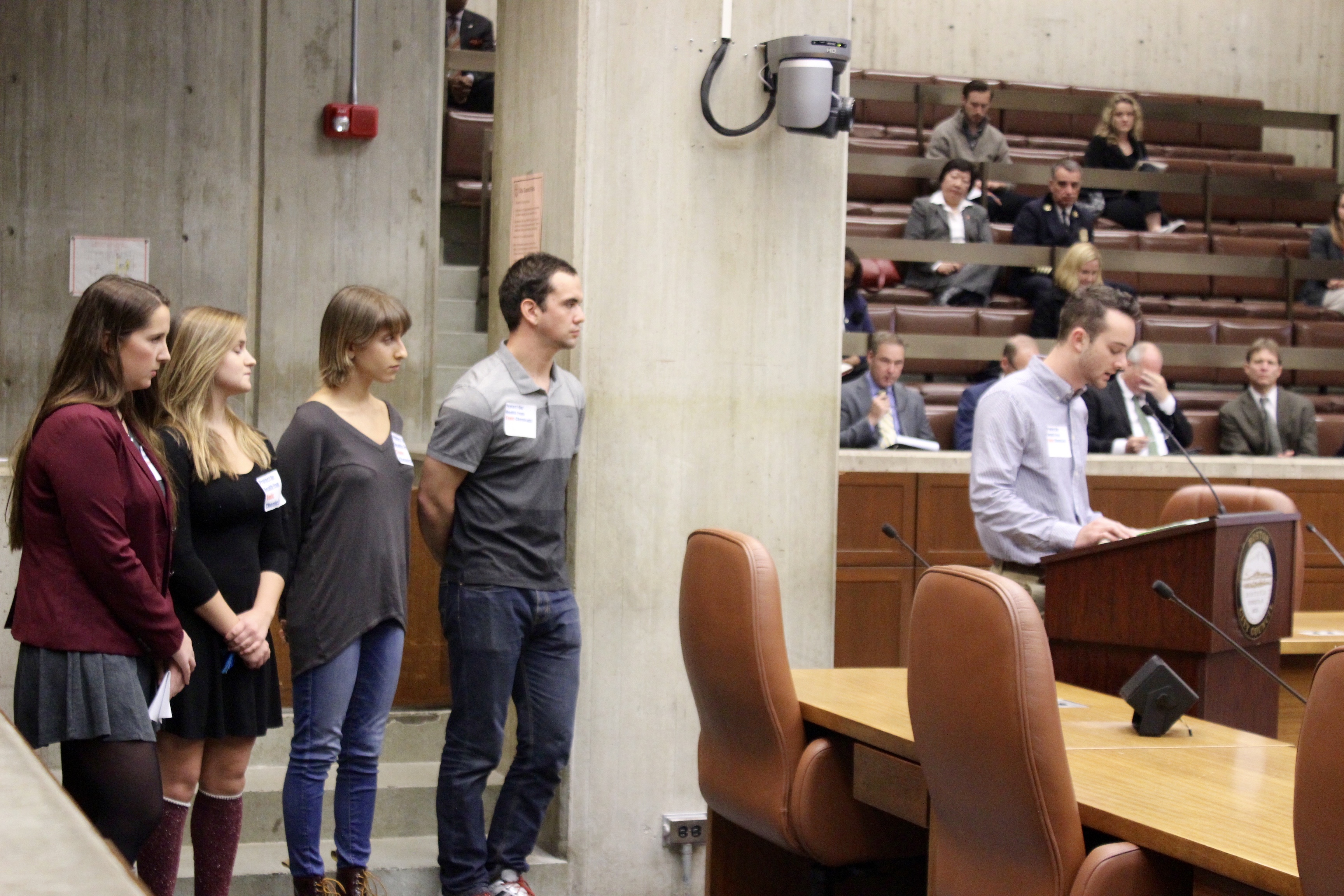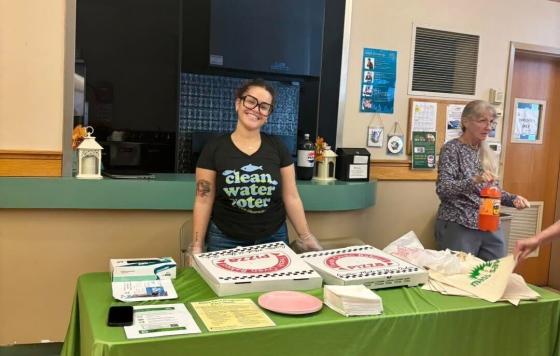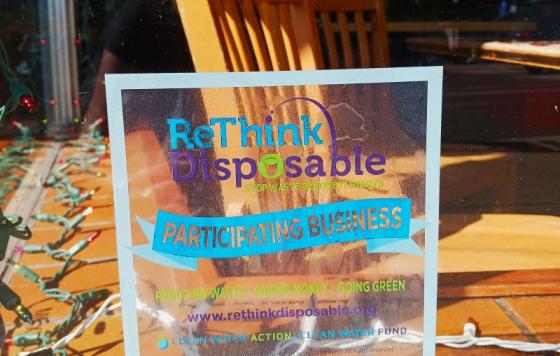
Marley Kimmelman is an Environmental Health and Justice Intern with our Massachusetts office
It was an unseasonably warm November day when I sat down in my political ecology class at Northeastern University. My professor, Danny Faber, an environmental justice champion in the Boston area, was showing us a film called “Toxic Hot Seat.” The topic seemed mundane: flame-retardants. But after sitting through the compelling and borderline shocking documentary, I was outraged. I had just watched a step-by-step breakdown about how flame-retardants, chemicals that are supposed to protect us from essentially bursting into flames, were nothing more than a tool in an industry ploy buried in a maze of misinformation. I am living in buildings and on furniture that are covered in toxic chemicals, and I didn’t even know about it. In addition, flame-retardants are being found all over the earth and are even accumulating in breast milk. I learned that firefighters are dying at incredibly high rates due to cancer and other diseases. Yet, similar to most situations like this, big industry was winning. They were denying the science, and putting profits over people’s health. The difference in this case was there was an actual tangible opportunity to make a difference.
Professor Faber told us that there was a public hearing and an opportunity to testify on a flame-retardants bill that would update The City of Boston’s fire code for public spaces. Under the current fire code, theaters, universities, office buildings and hospitals, for example can only meet the requirements by using flame retardant chemicals in furniture. At first I had no idea what I would say, or how I could possibly sound coherent in front of city councilors, firefighters, and potentially even industry executives. But I decided that I would give it a shot and maybe a Boston student who showed he actually cared about something political would help point to how clear the decision to update the fire code to eliminate flame-retardants should be.
The day came and a group of five of us had decided we were going to testify together, one after another. As we prepared outside the council chamber we could hear each person as they stood up to provide their reasoning for why they wanted flame-retardants out of furniture in the city’s “assembly spaces”. Mothers, professors, scientists, furniture manufactures, health care executives, and community leaders all stood up for what was right. Then it was our turn.
As I got up to close our group testimony, I made sure I hammered home the point that all of the people who testified and spoke before the councilors that day were begging them to do their job and protect our health, and it was up to them, as civil servants, to stand up for all of us and not the chemical industry. The feeling of actually taking action instead of just learning and discussing a problem was rewarding. In fact it was addicting. That feeling propelled me to apply and accept an internship with Clean Water Action this January to continue working on this campaign. So far it looks like I will have the platform to continue to speak up and work for meaningful reform, and hopefully help end the use of flame-retardants once and for all in Boston.


